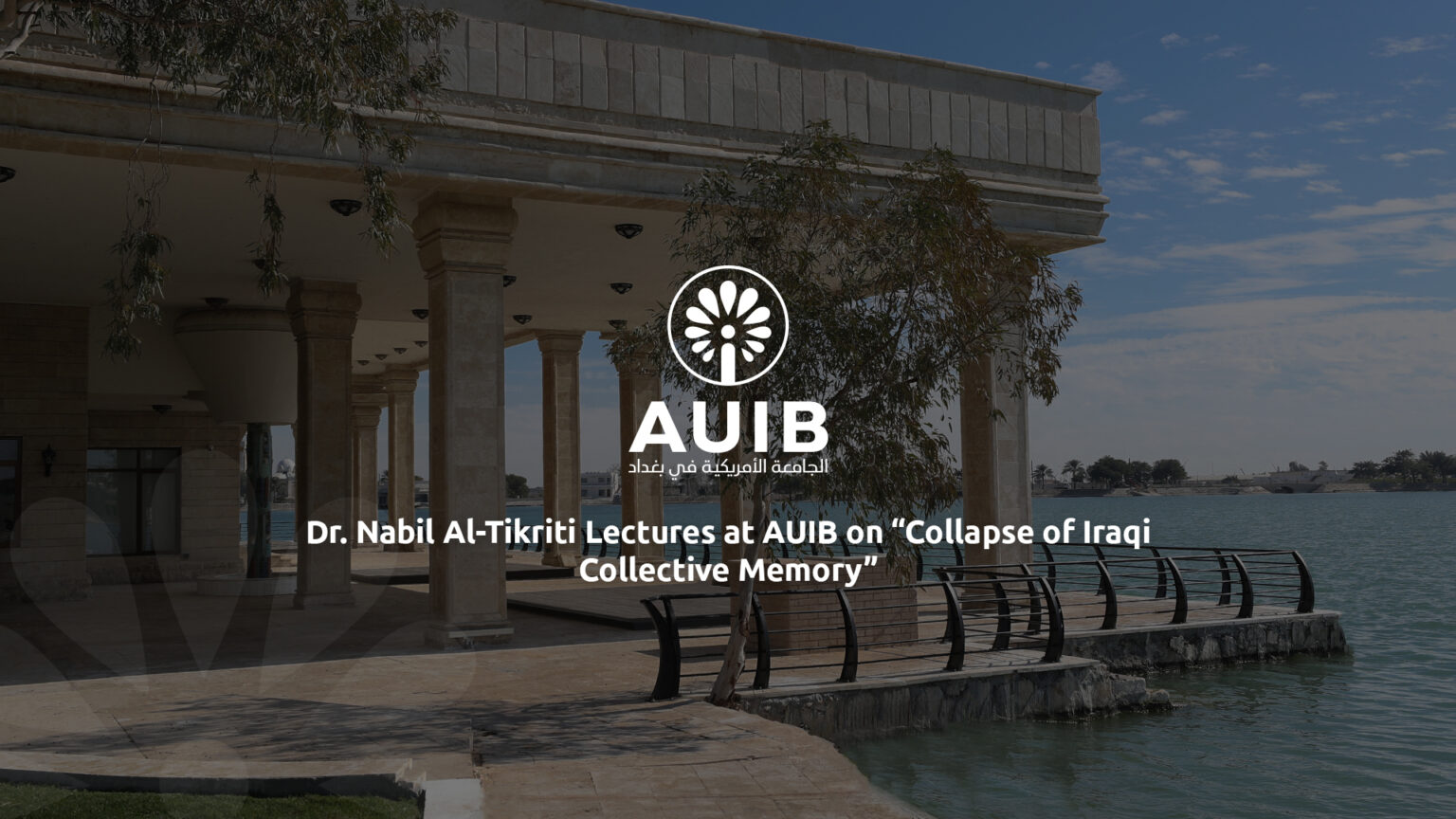In another seminar of the Guest Lecturer Series organized by the College of International Studies (CIS) at the American University of Iraq-Baghdad (AUIB), Dr. Nabil Al-Tikriti, Professor of Middle East History at the University of Mary Washington in Virginia, USA, engaged with a lively audience of CIS students, faculty, and interested parties on the topic of “Negligent Mnemocide and the Collapse of Iraqi Collective Memory.”
The term “Mnemocide,” similar in meaning to the more common term “Memoricide,” denotes the “killing of memory,” or the deliberate destruction and attempted erasure of a people’s cultural and historical heritage. Its root is the word “Mnemosyne,” the name of the ancient Greek goddess of memory. At the seminar, Dr. Al-Tikriti delivered a presentation on the complete or partial destruction and looting of Iraq’s most prominent libraries and archives, during and after the Anglo-American invasion in the year 2003. Of these were the library of the Academy of Sciences, the House of Manuscripts, the House of Books and Documents, Bayt Al-Hikma, and the Central Awqaf Library.
The looting of the National Museum of Iraq received ample media coverage and public attention, said Dr. Al-Tikriti, explaining that the aim of his presentation was to shed light on lesser-known crimes against Iraq’s heritage and historical collective memory. He spoke of a “hierarchy of perceived human value” and a hierarchical “civilizational perception,” where certain civilizations and their peoples are perceived as inferior, and thus unworthy of protecting.
